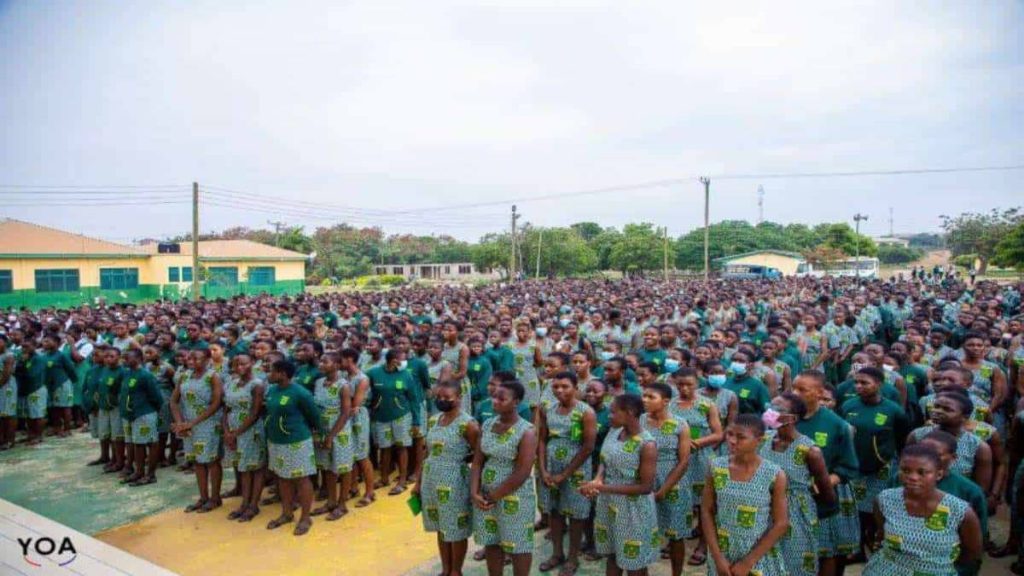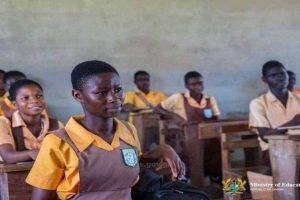MoE bans hairstyles, long hair in SHSs under free SHS programme

The Minister of Education, Haruna Iddrisu, has directed the Ghana Education Service (GES) to ban hairstyles and long hair in second-cycle schools under the Free Senior High School programme.
Speaking at the 75th Anniversary celebrations of Mawuli School, he said the Ghana Education Service (GES) and heads of second-cycle institutions to take full control of student behaviour in schools.
“There is an ongoing debate on social media about haircuts and size, and the lengths of hair in Secondary Schools. We’ll not tolerate it today, we’ll not tolerate it tomorrow, in so long as we are moulding character. If we give in to hair today, tomorrow it will be shoes, and the next day it will be the way they dress.
Therefore as part of our disciplinary measures, Headmasters and GES, you are accordingly empowered to take full control of how students behave on your campuses. So anybody who thinks that your child will walk into any institution of learning, as if that Child was to attend a beauty contest, the school environment is not for that purpose and not cut for that purpose, and will not tolerate that as an institution,” he said.
The Minister for Education, however, emphasized that teachers must exercise fairness and professionalism when enforcing school rules.
Mr Haruna Iddrisu, addressing heated debates on social media about students’ hairstyles and grooming standards, also warned that any teacher found abusing students would face sanctions.
“We will not tolerate indiscipline in our schools, including cases where teachers abuse learners. Any teacher found taking advantage of a student will face strict sanctions,” he added.
In other news, the Executive Director of Africa Education Watch, Kofi Asare, has urged parents and students to pursue legal redress if they feel unfairly treated under the hairstyle directive issued by the Minister in Charge of Education, Haruna Iddrisu.
In an interview monitored by Pretertiary.com, the Education Watch Director noted that while the Minister’s directive aims to promote uniformity and hygiene among students, it must still respect the rights of individuals.
He said students who feel victimized or discriminated against because of their hairstyles have the right to challenge such actions through legal means.
Mr. Kofi Asare added that enforcing discipline must go hand in hand with upholding fairness, inclusivity, and respect for personal dignity within Ghana’s educational system.
“It’s not always about indiscipline or discipline. I align with the law, and I encourage anyone who feels unfairly treated to engage the law. Society grows and so should the law grow,” he said.
He cited the case of old Achimota School student Tyrone Iras Marhguy, who was denied admission in 2021 because of his dreadlocks but later won the case in court.
“Marhguy argued that maintaining his Rasta was linked to his belief in Rastafarianism. And that denying him admission based on Rasta meant that his rights to religion and culture were being impugned on account of the school regulations…It was necessary for him to be allowed to manifest his religion by wearing his hair, which he related directly to his belief in Rastafarianism, and the court upheld that.
He added, “The court simply said, yes, schools may set their rules for regulating dress codes, including hairstyles. But in setting those rules, they shouldn’t be inconsistent with their right to religion.
“In the Marhguy case, culture and religion erupted. Before, all of us believed that it was unconscionable for the Ghana Education Service to deny people admission based on their hairstyles. That was our position.
Then, the Marhguy’s case came, and the court made a pronouncement, and so we all aligned with the law until there is a contrary pronouncement by the court,” the Africa Education Watch Director noted.



